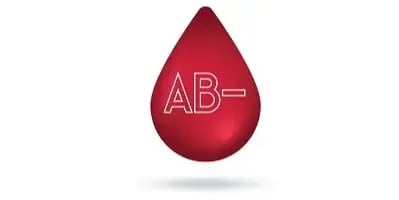Rare Blood Types

Complete the information below:
What You Need to Know!
Blood types or blood groups are determined by the presence or absence of certain antigens. Antigens are either sugars or proteins and they are attached to various components in the red blood cell membrane. The most common blood types are A, B, AB, and O and each blood type can be either Rh positive or Rh negative.
Rare blood types are those that are found in small portion of the population. Some of the rarest blood types include AB negative, B negative and AB positive.
The prevalence of the other blood types in the UK are as follows:
- AB negative: 0.6%
- B negative: 1.5%
- AB positive: 3.4%
- A negative: 6.3%
- O negative: 6.6%
- B positive: 8.5%
- A positive: 35.7%
- O positive: 37.4%
A blood type that you don’t frequently hear about is Rh null. This blood type is extremely rare, with only about 50 people in the world having it. People with Rh null blood do not have Rh antigens on their red blood cells.
Rare blood types can be important for patients who need blood transfusions. Because they are so rare, it can be difficult to find compatible blood donors. Patients with rare blood types may need to be placed on a blood donor registry or have family members or friends donate blood for them.
Interestingly, when it comes to research, scientists require AB serum collected from males with AB blood. AB serum is a staple in the biological research field, providing nutrients, vitamins and necessary growth factors in cellular culture and reliable controls in vitro diagnostics. A single gendered pool is used to reduce variation in the final product. The AB blood type means that donors have both A and B antigens on their red blood cells and therefore lack blood group antibodies. This guarantees that the serum will not react with other blood types, further minimizing immunoreactivity for researchers.
Here are some things you can do to help increase the availability of AB serum for research:
- If you are eligible to donate blood, please do so (males with AB blood types are needed - this is because researchers typically need Human AB serum that is produced from 150-250 donors and pooled together).
- Tell your friends and family about the importance of blood donation and encourage them to donate blood, especially if they have a rare blood type.
By donating blood for research and spreading the word about the importance of blood donation, you can ultimately make a difference in the lives of those who suffer from a multitude of ailments. Plus, you’ll be paid for your time and effort when complete so you leave knowing you’ve helped others and helped yourself!
Click here to book an appointment for your white blood cell donation or contact us at +44 203 608 6260 to learn more.
.webp?width=2883&height=1011&name=CTLS%20Logo%C2%AE_%20Font_Final%20(2).webp)